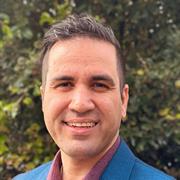
Dr. Kamyar Shirvani Moghaddam
Details
-
Department: Fashion & Textiles
-
Campus: Brunswick Australia
-
kamyar.shirvani.moghaddam@rmit.edu.au
-
ORCID: 0000-0002-8136-8389
About
Assoc/Porf. Kamyar Shirvani Moghaddam is an educational and research lead with focus on sustainability, circular economy, advanced materials and smart textiles. His research revolves around utilizing advanced materials to engineer smart structures, intelligent and smart textiles and promote a more sustainable future. One of his key areas of interest lies in incorporating nanomaterials into fabrics to create smart textiles with superior properties. These next-generation textiles boast enhanced strength, flexibility, and even built-in functionalities, such as health monitoring or temperature regulation. This focus on smart textiles aligns perfectly with the growing field of wearable technology.
His vision extends beyond functionality. A significant portion of his research explores repurposing waste materials and incorporating them into his advanced material development. This focus on waste reduction and reintegration aligns with the principles of a circular economy, where materials are kept in use for as long as possible, minimizing environmental impact.
Kamyar's commitment to sharing his knowledge is evident in his extensive publication record within high-impact scientific journals. He actively participates in prestigious international conferences, fostering collaboration and establishing himself as a thought leader in sustainable material development. Beyond academia, Dr. Shirvani Moghaddam bridges the gap between theoretical research and real-world applications through collaborations with industry partners. These partnerships drive innovation towards commercially viable products that promote a more sustainable future. His research on waste repurposing and the circular economy reflects his dedication to creating a positive impact on both society and the environment.
Research fields
- 401102 Environmentally sustainable engineering
- 401611 Wearable materials
- 401605 Functional materials
- 401106 Waste management, reduction, reuse and recycling
- 4014 Manufacturing engineering
UN sustainable development goals
- 11 Sustainable Cities and Communities
- 6 Clean Water and Sanitation
- 4 Quality Education
- 9 Industry, Innovation and Infrastructure
- 17 Partnerships for the Goals
- 12 Responsible Consumption and Production
- 13 Climate Action
Supervisor projects
- Utilisation of Food Waste for Polymer Production in Sustainable Textiles
- 19 Dec 2025
Teaching interests
Research interests
High-Tech Fabrics and Clothes That Think and clothing with Built-in Technology
2. Alternative Precursors for the Textile Industry
3. Waste to Wealth: Repurposing Waste Materials
From Landfill to Luxury: Repurposing Waste (Food, plastic and textile) for Next-Generation Materials
4- Advanced Materials


